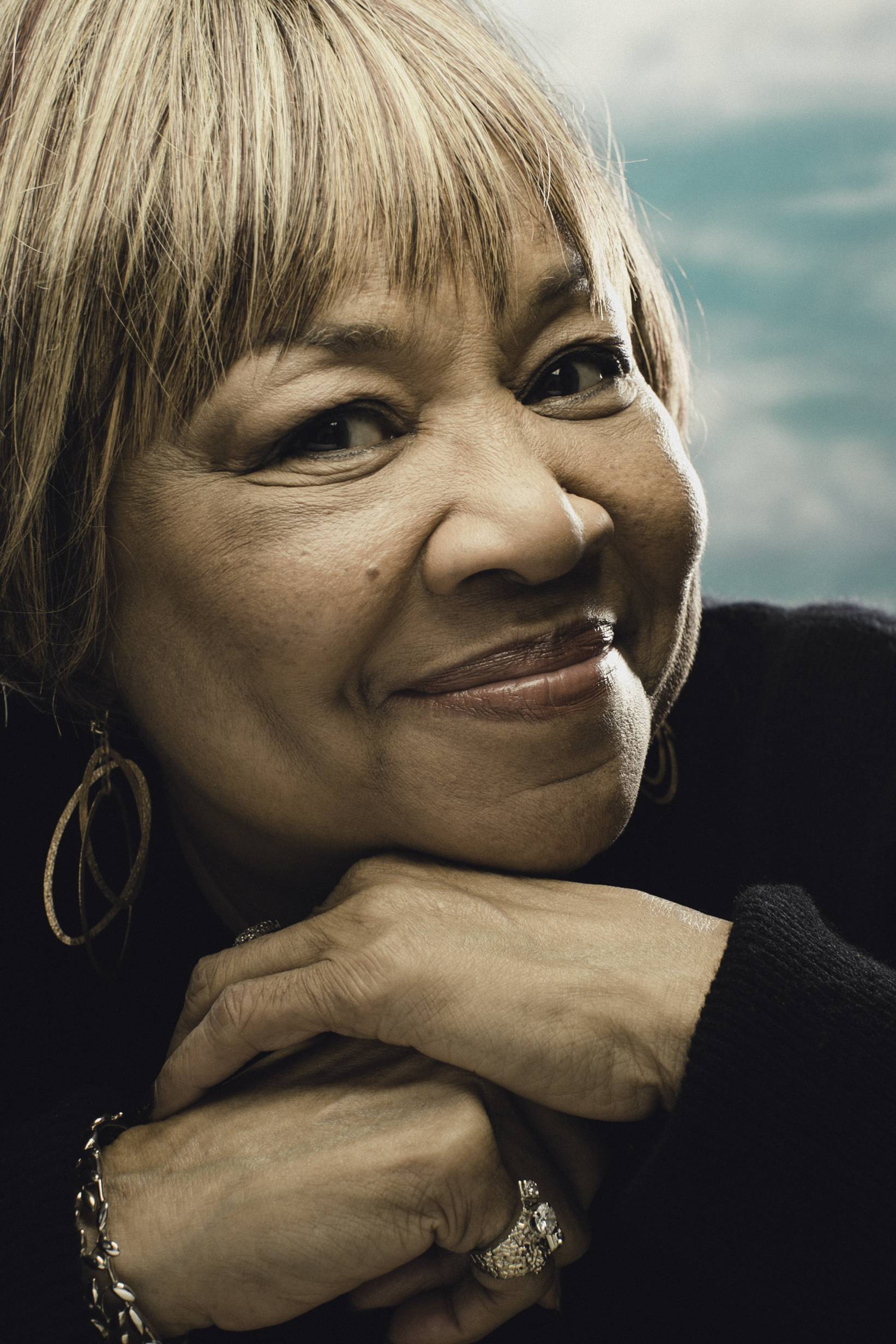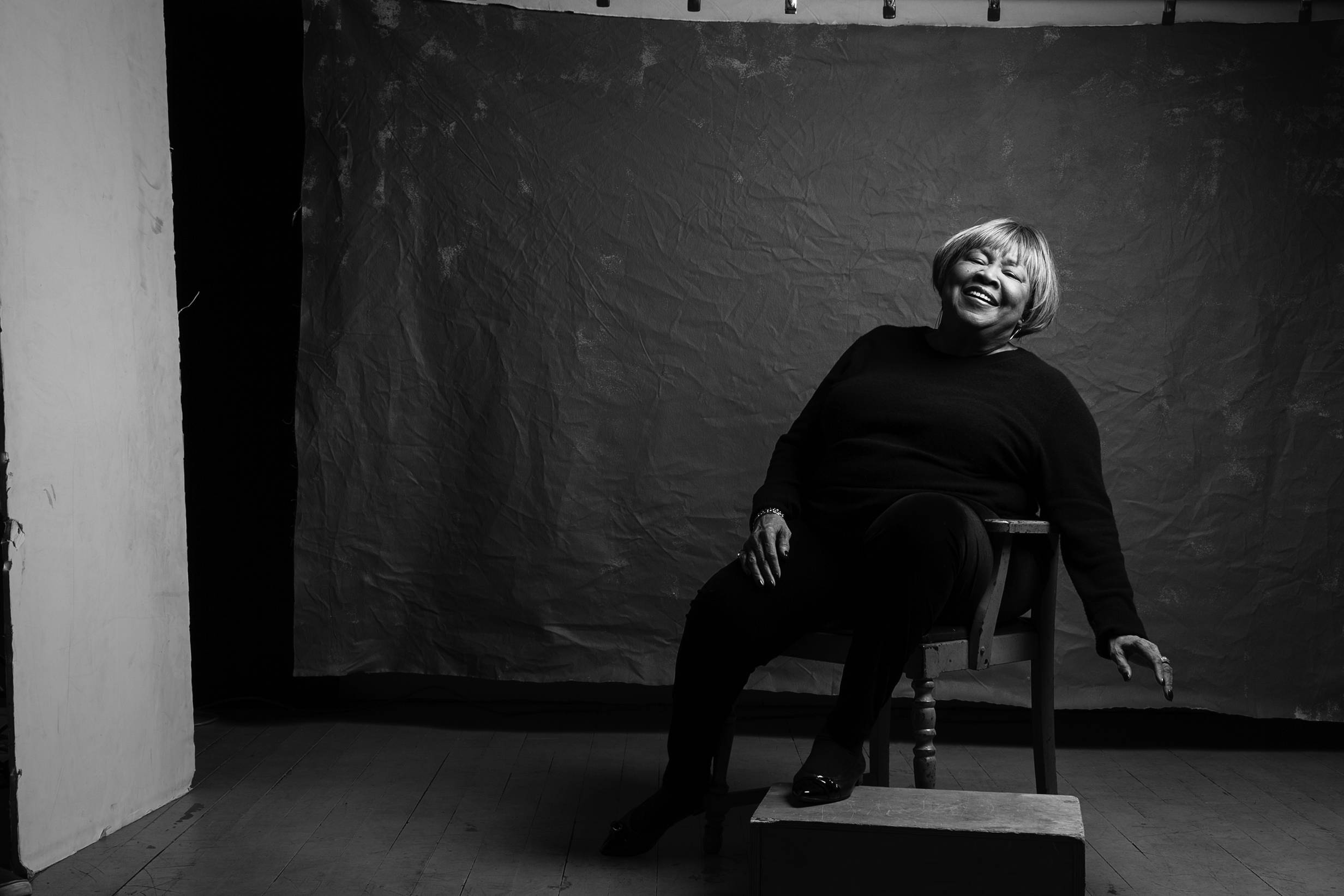Mavis Staples has made history. As a central member of her family’s group, The Staple Singers, Mavis took gospel and soul music to places they hadn’t been before. The Chicago-based group was founded by “Pops” Roebuck Staples in the 1950s, a musician himself, who one day, after frustrated with his bandmates’ truancy, sat down with his children and formed his own.
The group sang gospel songs in churches on Sunday, gathering an audience quickly. Their soulfulness, fronted by Mavis’s dusky, powerful singing voice, could really make an impression. The volatile political climate of the time found its way into their music, and The Staple Singers found themselves thrusted into the heart of the Civil Rights Movement. They managed to take the strength and pride of gospel and pull it to other genres, where they made up the backbone of protest songs like “When We We Be Paid” and “Why (Am I Treated So Bad).” These and other anthems rang out loud in the fight for the rights of African Americans in America. The Staple Singers became central figures of the movement — Pops Staples even befriended Martin Luther King, Jr., and they would often play at his rallies. Mavis and the band used their versatility to delve into secularism, releasing huge hit songs like “Let’s Do It Again” and covering other protest artists like Bob Dylan, with whom she had a close friendship. The Staple Singers are truly a seminal act of the Civil Rights Movement and the 1960’s.
Decades later, The Staple Singers’ influence on modern music and culture still resonates. Mavis, in her solo career, has kept the skillful versatility alive for her entire career. She has collaborated with a long list of musicians from all over the spectrum, from Prince to Jeff Tweedy. Mavis has managed to keep a fresh sound for six decades.
Pops Staples passed away in 2000. In 2015, Mavis unearthed some of his very last material for a posthumous album. Entitled Don’t Lose This, it was meant as the last Staple Singers album, eked out by an ailing but determined Pops. Mavis and Jeff Tweedy finished Pops’ music with a very light touch, creating an admirable homage to the man and his life’s work.
Mavis moved away from that heaviness for a while with her latest album. Released on February 19th of this year, Livin’ On A High Note is a purely joyful album. This one finds her collaborating with fresh faces yet again. The album was produced by M. Ward, and the songs were penned by a number of musicians, including Justin Vernon, Nick Cave, Merrill Garbus, and Ben Harper. The different tracks sound like their authors, but through an unwavering, unparalleled vehicle. Mavis’ voice has a way of lifting words to new heights.
Mavis has seen some weighty and troubling issues in her time and career, but she knows how to stay strong and keep the happiness going. She reflected on that and on other themes in a brief conversation with us.
Smile Politely: Like much of your work, your new album, Livin’ On a High Note, has a communal feel. It features your voice backed by words from many different musicians, including Nick Cave and Neko Case. Do you prefer to make music as part of a group effort?
Mavis Staples: Well, I sing from hearing, so I need someone with me, to play, for when I sing. So to me it is always a collaboration and a group effort.
SP: You’ve collaborated with some legendary artists over the years, such as Bob Dylan, Jeff Tweedy, and Prince. Is there any particular musician you haven’t yet worked with, and would like to?
Staples: I would love to do a duet with Adele. Sometimes I hear her sing and think to myself she just might be the best ever. And she’s still so young. We were on Jools Holland in England a few years back, and I got to meet her, but we didn’t get to sing and now she’s a superstar.

SP: You and the Staple Singers are closely associated with the civil rights movement of the 60’s and with acts like Bob Dylan and Pete Seeger. Unfortunately, a lot of issues from that time are just as present today. Does music function any differently as a tool of progress in this age? Does “protest music” still exist?
Staples: The times are different today, music is different, and so it is hard to compare the 60’s to now. Sometimes to me it does feel like the 60’s all over again, and protest songs are relevant. But I still feel that I’m still where we were when we first started singing: I’m singing these songs to lift your spirits and give you a reason to hope. Keep your head up, have faith and think positive. Whatever the problem is, you can survive it. You can overcome.
SP: Who are some artists making music now that are keeping that idea alive?
Staples: I did a song not too long ago with Chuck D, he had the thread in his music, and still does. Fight the power! Beyonce did with her new song and the video. I’ve done shows with Billy Bragg and he has that side to his songs. Jackson Browne. Kendrick Lamar on the Grammys got down and political.
SP: When you play Coachella this year, you’ll be unique in representing your generation and your genre compared to the other acts. You have managed to maintain relevancy over a career that spans six decades. What do you think is the most important thing that this generation of musicians should learn from yours?
Staples: It’s the small things. Age ain’t nothing but a number. I don’t think about age. When I have a birthday, I just say it’s me turning 39, just with a few decades of experience. And I think that is important for artists – the frame of mind you have. I always keep a young, or timeless, frame of mind. And you have to keep connected to your joy. That is what people respond to. Pops told me that all the way back – to sing from a place of joy, from my heart. “What comes from the heart, reaches the heart” – That is the gospel of Pops!
Mavis Staples is performing at The Virginia Theatre on Friday, April 1st at 7:30 pm, with doors opening at 6:30 pm. Tickets start at $29.50.








